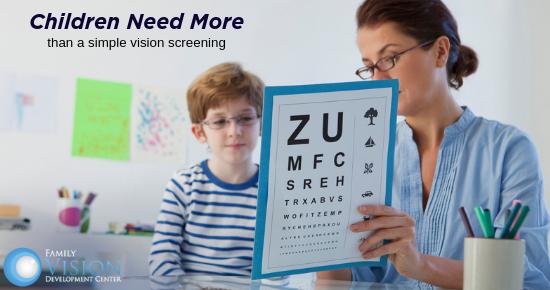We’re all told to get our eyes examined on a regular basis. And it might be common sense to think that the earlier a vision condition is detected, the better the chance of treating it. But is a comprehensive eye exam the only way to detect eye conditions? Is it really that different from a vision screening? Read on to discover why comprehensive eye exams really are so important, and what takes place during the appointment.
Eye Exam Vs Vision Screening
YES, there is a big difference between these two types of procedures. A vision screening is a very basic test that only assesses vision, while a comprehensive eye exam involves a number of tests to provide a complete evaluation of your vision as well as the health of your eyes.
What Happens During The Exam?
First and foremost, the optometrist will get a full patient background and history in order to discover any past or present medical conditions or allergies. The doctor will then use a variety of tests and procedures in order to assess the health and function of your eyes. This can include testing for visual acuity, or the sharpness of your vision, along with procedures that asses how your eyes work together, how well your eyes can follow a moving object or move between two objects, and if there is evidence of proper depth perception when looking at a 3D object.
The doctor may also use a number of different instruments to determine your exact prescription for eyeglasses, and will examine the structure of the eye, including the eyelids, cornea, iris, lens, retina and optic nerve, under high magnification, which can uncover a wide range of eye conditions or diseases.
Why Is A Comprehensive Eye Exam So Important?
Many eye conditions show no obvious symptoms in the beginning stages and can go undetected for a long time, therefore continuing to worsen and increasing the risk of permanent damage. Unlike a vision screening, a comprehensive eye exam is the only way to diagnose most types of eye diseases or conditions, such as amblyopia (lazy eye), nearsightedness, farsightedness, astigmatism, cataracts, macular degeneration or glaucoma, or even health issues such as diabetes, thyroid disease or cancer.
The earlier these conditions are diagnosed, the faster treatment can begin, and the more likely you are to protect your vision. Call Family Vision Development Center at 630-862-2020 to schedule your appointment in our Aurora office.
Related articles can be referenced here and here

